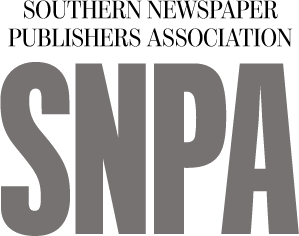NLRB continues to engage in mischief
In October 2014, I shared a disturbing development at the National Labor Relations Board concerning a new attack on independent contractor status and the reversal of the favorable precedent of St. Joseph News-Press. Today, I must report to you that the NLRB continues to engage in much mischief.
In a recent decision, the Board reversed a case called The Register-Guard and ruled that employees have a statutory right to use the employer's e-mail system for union organizing purposes. Just a few days later, the NLRB made final its "quickie election" rule, constituting a broadside attack on the First Amendment rights of employers everywhere.
NLRB overrules Register-Guard e-mail case
On Dec. 11, 2014, the NLRB ruled that "employee use of e-mail for statutorily protected communications on non-working time must presumptively be permitted by employers who have chosen to give employees access to their e-mail systems." The NLRB overruled the 2007 Register-Guard decision "to the extent it holds that employees can have no statutory right to use their employers' e-mail systems for Section 7 purposes."
Two of the current Board's themes are disparagement of employers' property rights and doing everything in its power to restrict the First Amendment rights of employers. This new decision does damage to both. The Board said it believed that the Register-Guard decision placed too much emphasis on employers' property rights, and cited various law review articles by pro-union law professors who are disdainful of the property rights of employers.
This is a 3-to-2 decision, with the two Republican members (Miscimarra and Johnson) vigorously dissenting. The National Labor Relations Act does not transform the use of e-mail into "some kind of rule of adverse possession by employees regardless of their particular employer's wishes and regardless of that employer's rules and regulations. The National Labor Relations Act does not require that an e-mail system paid for by the employer to become public for employee Section 7 purposes."
Member Johnson notes that the new decision adopts the position of the dissent in Register-Guard and equates e-mail communication with face-to-face communication "at the water cooler." He categorically rejects this analytical framework, noting: "E-mail communications can extend to the entire work force and can occur during any point when the e-mail system is operational, be that working time or non-working time."
Noting the adverse impact on productivity, member Johnson wrote: "E-mail thus poses far more of an acute and substantial danger of infringement on the overall productivity of an Employer's enterprise than face-to-face conversation ever could." The core communications network used for business operations would be transformed into a "permanent chat room for non-business topics."
Rejecting the majority's convenience argument for employees, member Johnson writes: "While it may be more convenient for employees to communicate with each other using the same employer-owned e-mail system upon which they carry out their daily work, convenience has never been a justification for an employer losing control over its property."
The majority decision, in violation of the First Amendment, compels employer-funding of a huge volume of speech that the employer does not support. Noting that the courts have earlier ruled that the NLRB's notice posting rule was declared to be unconstitutional compelled speech, member Johnson further stated: "Today's transgression against the First Amendment is worse. Instead of one notice poster, the Board now requires the employer to sponsor and underwrite a never-ending electronic procession of hostile speech."
The problem is that an employer is being forced to subsidize speech that is not its own – and will be 180 degrees opposite from its point of view.
The majority opinion left open for a future case e-mail access by non-employees, as the issue was not raised in this case.
Editor's Note: The Zinser Law Firm, P.C. represented Register-Guard in its 2007 victory.
NLRB makes final its 'Quickie Election' rule
In the February 2014 issue of LawLight, we reported that the NLRB had reissued its proposed rule to dramatically shorten the period of time between the filing of an election petition and the holding of an election. On Dec. 12, 2014, the NLRB, in a 3-to-2 decision, announced that it had adopted a final rule. The rule was published in the Federal Register on Dec. 15 and will take effect on April 14, 2015.
The final rule adopts almost all of what was set forth in the Feb. 4, 2014, proposed rule, which in turn was nearly identical to what the Board proposed in 2011. The rule adopts a philosophy of "election now, hearing later." The rule impermissibly conducts expedited elections before any hearing addresses key questions such as who is eligible to vote.
Congress twice rejected this "election now, hearing later" approach when it amended the National Labor Relations Act in 1947 and 1959. The rule is contrary to the statutory requirement under the Act, mandating an "appropriate hearing" prior to any election.
The rule improperly shortens the time needed for employees to understand the issues. It compels employees to "vote now, understand later." By requiring elections to be held as soon as possible, the rule infringes the rights of employers under the First Amendment of the Constitution to engage in protected speech to educate employees about unionization. The rule places employees in the position of voting on unionization without being informed.
The rule imposes new disclosure requirements, requiring employers to disclose personal contact information of employees – including all personal e-mail addresses and cell phone numbers in the employer's position. The rule adopts this expanded disclosure requirement without any employee "opt out" right regarding such information. The rule even rejects privacy enhancement measures as simple as requiring an "unsubscribe" link in election texts and e-mails.
The Board majority's justification for this invasion of privacy is the importance of personal e-mail addresses and cell phone numbers to protected activity, and the prevalence at work of cell phones. This is irreconcilable with the Board's new decision in Purple Communications, where the Board majority stated that social media, texting and personal e-mail accounts are not even "germane" because they "simply do not serve to facilitate communication among members of a particular workforce."
Other changes in the rule include:
- The reduction from 14 to seven days for scheduling a pre-election hearing.
- The deferral of voter eligibility issues until after the election.
- The elimination of pre-election hearings as much as possible.
- The elimination of pre-election requests for review.
- The deferral of decisions on most issues until after the election.
- The elimination of any automatic right to post-election Board review of contested issues.
The final rule is arbitrary, capricious and in direct conflict with the NLRA as written. The rule is unconstitutional and in violation of the First Amendment of the Constitution of the United States. This just continues a trend of the current Board – disdain for the First Amendment rights of employers.
Expect groups such as the U.S. Chamber of Commerce and the National Association of Manufacturers to challenge the rule in the federal courts.
 |
L. Michael Zinser is the founding partner of The Zinser Law Firm in Nashville, Tenn. The firm, which has a heavy concentration of clients in communications media, represents management in the area of labor and employment. Zinser can be reached at (615) 244-9700 or mzinser@zinserlaw.com.






